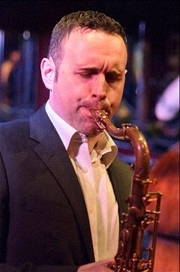Tutor HuntResources Saxophone Resources
Tinnitus
tinnitus
Date : 12/09/2013
Author Information

Uploaded by : Matt
Uploaded on : 12/09/2013
Subject : Saxophone
I have experienced severe tinnitus and have been told there is nothing that can be done to treat it. This is untrue which is why I have included this information on my website. I am happy to say that I no longer experience severe tinnitus or the sensitive hearing that accompanied it. I may occasionally hear it in quiet environments, or it may re-appear in times of stress but generally it's no longer there. In order to treat tinnitus you must first have the correct information.
Unfortunately many doctors and health practitioners are working on the presumption that tinnitus is the result of hearing damage. This is untrue. Tinnitus does have a connection with loss (or partial loss) of hearing but it isn't the result of damage to the inner ear. I am a musician with perfect hearing and I still experience tinnitus. Previous tinnitus treatments have failed because the condition has never truly been understood.
So what is tinnitus? Everybody has tinnitus - it's just that not everybody hears it. The question is, why do some people hear it and why can it become a problem?
In 1953 Heller and Bergman performed a simple and classic experiment. They placed 80 tinnitus free individuals (university members) in a sound proofed room for 5 minutes each, asking them to report on any sounds that might be heard. The subjects thought they might be undergoing a hearing test, but actually experienced 5 minutes of total silence. 93% reported hearing buzzing, pulsing, whistling sounds in the head or ears identical to those reported by tinnitus sufferers. This simple experiment shows almost anyone can detect background electrical activity present in every living nerve cell in the hearing pathways as a sound. Although some areas of the auditory system may be more active than others, every neuron will contribute to some extent to the final perception of tinnitus. These electrical signals are not evidence of damage, but compensatory activity that occurs all the time in the auditory system of each one of us. This information was taken form www.tinnitus.org
The ringing, whooshing and variety of strange noises that people experience are natural noises generated by electrical signals in the hearing pathways. The brain normally filters out a lot of this unnecessary noise because it is not essential to our survival.
Complete dead silence is unnatural, and when in a quiet environment the brain has the ability to turn up the volume (auditory gain). This is a survival reflex; a defense that the body developed millions of years ago when predators hunted humans. In times of danger the body's nervous system can go into a state of red alert, also known as the fight or flight response. This reaction readies the body for action and this can also cause our hearing to become super-sensitive. It's thought that a certain amount of hearing loss can be enough for the brain to compensate and turn up the volume and this is when tinnitus may be experienced. Other life events such as trauma, a car accident or a death of a loved one can cause the nervous system to go into a state of red alert, again making our hearing super sensitive. Tinnitus becomes a problem for some people purely because of their reaction to it. Being told there is nothing that can be done to treat it, or worrying that it may be a symptom of a serious illness, very often leads to a vicious circle were the tinnitus is constantly monitored and as a result it is perceived even louder, causing even more worry.
Pawel Jastreboff, a neuroscientist worked out exactly what tinnitus is and how it may be treated. Tinnitus retraining therapy is a very successful treatment that is based on Pawel Jastreboff tinnitus model. Although the NHS will refer people for this treatment many health practitioners still don't recognize its value and are still stuck with their old outdated beliefs regarding hearing damage. More information on tinnitus retraining and Pawel Jastreboff can be found at http://www.tinnitus.org/
This resource was uploaded by: Matt
